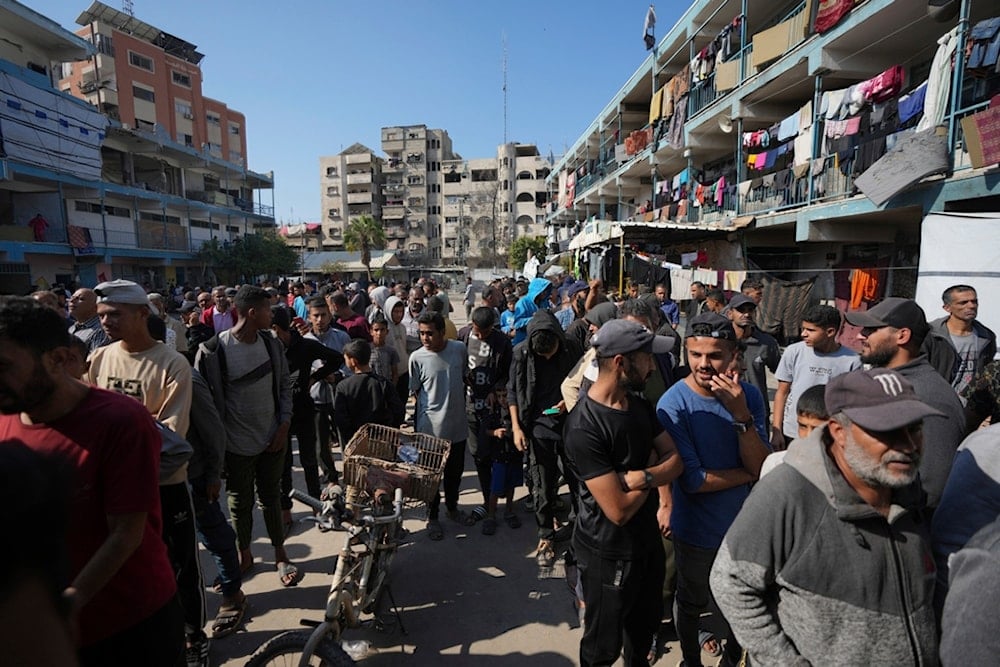Qatar reports progress on Hamas' end in ceasefire talks: Israeli media
Israeli media quotes foreign sources as saying Qatar expressed optimism regarding the ceasefire talks on Hamas' end.
-

Palestinians gather to receive aid distributed by UNRWA, the UN agency helping Palestinian refugees, in Nusairat refugee camp, Gaza, on November 5, 2024 (AP)
Israeli public broadcaster Kan reported Friday evening that Qatar had sent a highly positive message to the Israeli occupation regarding Hamas' intention to advance in negotiations.
According to the report, the message focused on the list of Israeli captives who have remained alive in Gaza. Following this communication, Israeli Prime Minister Benjamin Netanyahu held an urgent phone meeting with a select group of ministers and negotiation team members.
US officials involved in the prisoner exchange negotiations told Kan, "The essence of the discussions revolves around transitioning from the first phase to the second phase, with an understanding of the need to link both phases to achieve the deal."
Meanwhile, Channel 12 cited sources expressing optimism within the Israeli security and military establishment about the possibility of reaching a prisoner exchange agreement.
A survey published Friday by the Israeli newspaper Maariv revealed that 88% of respondents support a deal to bring back captives held in Gaza. Of those, 52% favor a comprehensive exchange deal, while 36% back a partial deal.
Back in December, a Palestinian senior official informed Al Mayadeen that meetings in Doha, Qatar, including the United States, "Israel", and Egyptian and Qatari mediators, focus on resolving the deadlock impeding negotiations for a possible ceasefire in Gaza
According to the official, significant progress has been witnessed in the negotiations. He added that the Israeli occupation had concentrated its demands on the return of 34 captives still in Gaza while expressing its willingness to withdraw from densely populated areas across the strip.
What does the current ceasefire proposal look like?
In this context, the potential ceasefire currently being discussed would be implemented in two phases.
The first phase involves a 42-day truce and a prisoner-exchange deal that would see the release of Israeli women, children, the elderly, and female soldiers, for the liberation of a substantial number of Palestinian prisoners, particularly those with long sentences and life sentences.

 3 Min Read
3 Min Read








